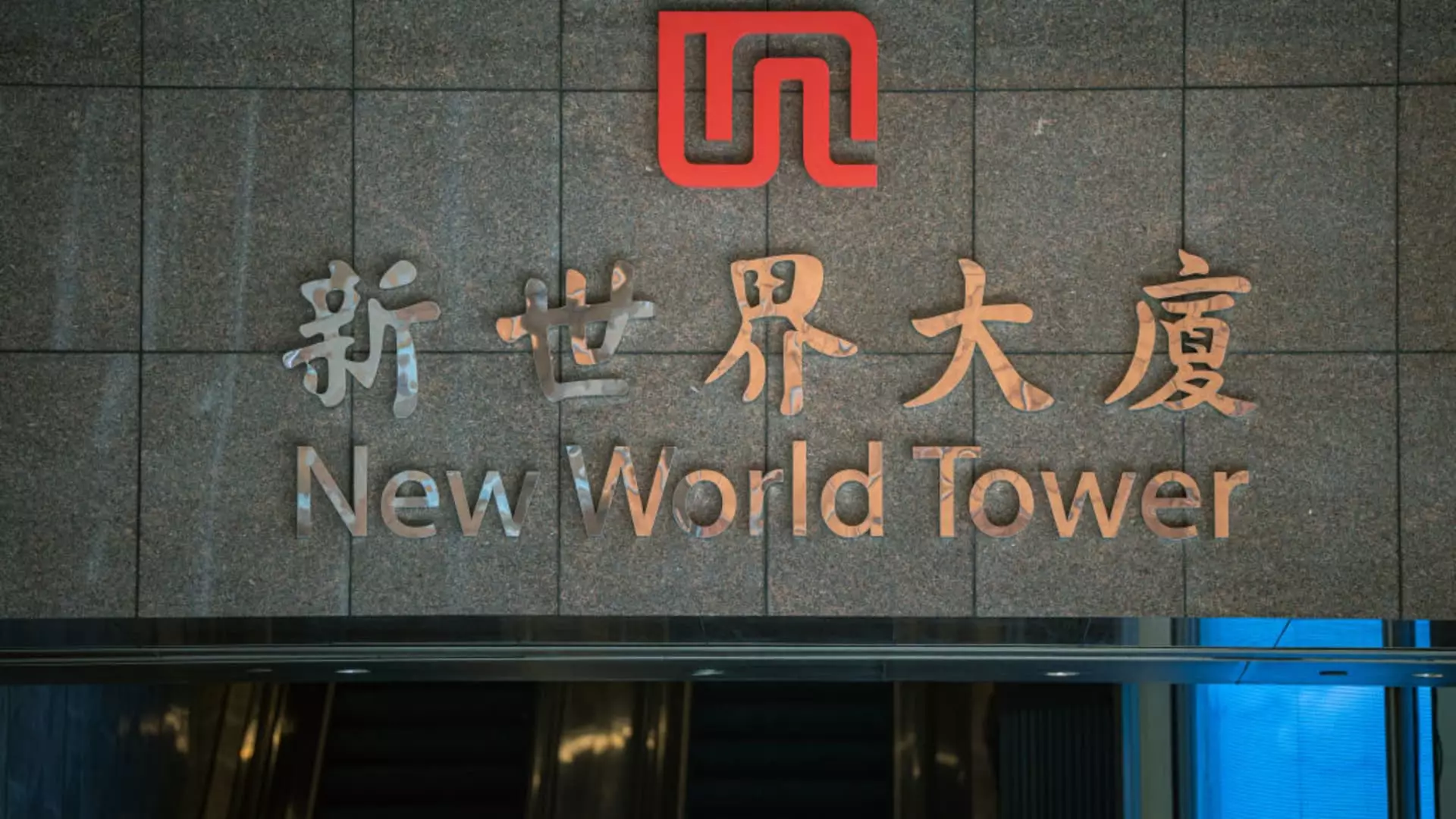The recent resignation of Adrian Cheng from New World Development has sent shockwaves through the Hong Kong financial landscape, resulting in a staggering 23% surge in the company’s shares after trading resumed. Cheng, a scion of the founding family, made the decision to step down in order to focus more on public service and personal commitments. This transition is noteworthy, particularly as it led to the appointment of Eric Ma Siu-Cheung, New World’s Chief Operating Officer, as the new CEO. This move is significant as it marks a rare occasion in which an outsider is given the reigns of a family-centric business in an environment where familial leadership typically prevails.
The market’s enthusiastic response to Cheng’s departure and Ma’s appointment is telling. While one might expect uncertainty and volatility surrounding leadership changes, the strong rebound in share prices indicates investors’ optimism—for now. This optimism might stem from a perception that a fresh, perhaps less entrenched perspective could provide a new direction for the beleaguered developer, which recently disclosed expectations of a staggering loss of approximately HK $19 billion to HK $20 billion for the financial year ending in June. This decline results from various factors, including diminished sales, investments losses, and significant impairment charges.
New World’s financial woes are symptomatic of broader challenges facing the Hong Kong and mainland China real estate markets. Investors are showing growing concerns regarding elevated debt levels that have begun to stifle the industry’s growth potential. Alicia Garcia-Herrero, an experienced economist with Natixis, emphasizes the critical role of corporate governance in these challenging times. This sentiment raises questions about the efficacy of keeping company leadership within founding families, especially when the markets are volatile and performance falters.
Although New World’s immediate financial outlook remains grim, recent stimulus measures announced by China could offer a glimmer of hope. These government actions have prompted rallies within both Hong Kong and Chinese equities, suggesting that markets may be starting to regain some confidence. The Chinese central bank’s announcement of enhanced fiscal and monetary policies following concerns over a declining real estate market underscores a proactive approach aimed at stabilizing the sector. Leaders are proactively addressing issues ranging from employment challenges to an ageing population, an indication that they are gearing up to support and rejuvenate the struggling market.
The leadership change at New World Development is a pivotal moment that could have far-reaching implications for both the company and the broader Hong Kong property market. Amid this shift, the urgent need for effective management and governance has never been more pronounced. As New World grapples with substantial losses, the market will be watching closely to see if new leadership can navigate these tumultuous waters. With ongoing governmental support and strategic pivots, there may yet be a path forward for not only New World but for the larger sector itself.

